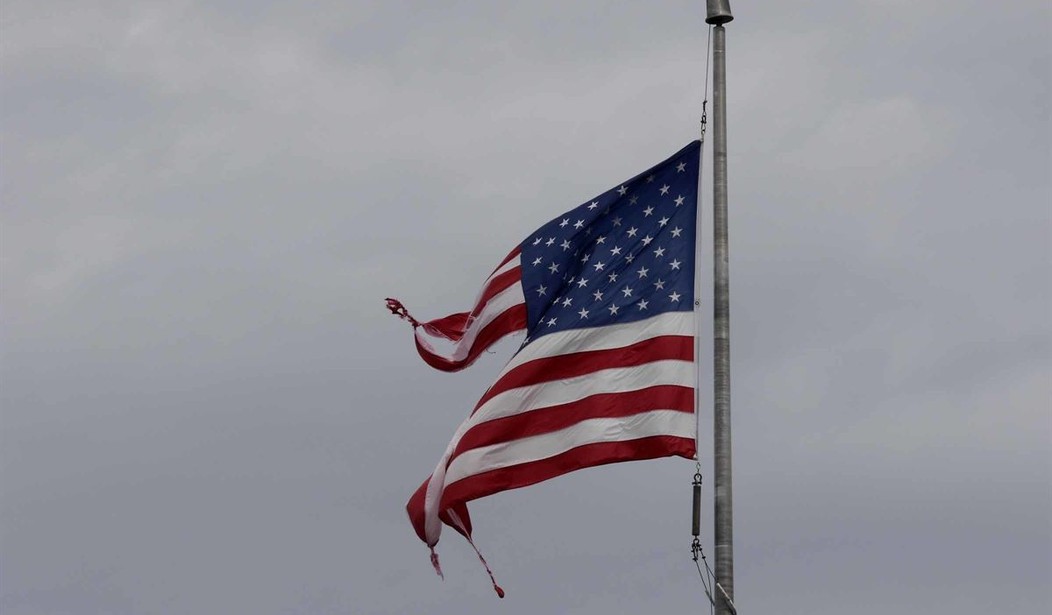America stands at a precipice.
It's a moral precipice of our own making: We're not facing any external existential threat, or any serious economic crisis. Nonetheless, we're at each other's throats in a shocking and unique way. At least in the 1960s, serious issues divided us: the national attempt to grapple with legally enshrined racism, the sexual revolution, the Vietnam War. We have no such excuse now. Yet to view the sheer chaos surrounding the confirmation of Justice Brett Kavanaugh is to realize that we may simply have nothing in common anymore, other than our sheer blind luck at having been born into the most prosperous, free, productive country in world history.
But a nation is more than a country. A nation is a people united by history, ideals, culture, institutions. But we've been steadily chipping away at each element of that nationhood.
Our history now divides us. This week, retired astronaut Scott Kelly was forced to apologize on Twitter for the grave sin of quoting Winston Churchill; he tweeted, "I will go and educate myself further on his atrocities, racist views which I do not support." Meanwhile, across America, left-leaning city councils celebrated Indigenous Peoples Day in place of Columbus Day, signaling their belief that Christopher Columbus' discovery of the New World was a tragedy rather than a cause for celebration. We Americans are in the midst of a serious division regarding our own character: Was America and the West founded on fundamentally good and eternal principles, principles we've sometimes failed to live up to, of course, but principles worth fighting for? Or is America and the West the font of evil, the source of suffering, and is all our prosperity merely the fruit of the poisonous tree?
Our ideals divide us, too. On the one hand are "red state" Americans, steeped in traditional Judeo-Christian principles and mores -- Americans who believe that our rights are God-given, and that liberty must be balanced by traditional moral virtue. On the other hand are "blue state" Americans, steeped in egalitarian principles and mores -- Americans who believe that rights spring from government, and that inequality is a more pressing concern than individual liberty, and that systems of traditional virtue merely mask hierarchical power structures.
Recommended
Without a shared history or shared ideals, culture and institutions crumble. Our culture has fragmented - can we celebrate July Fourth and stand for the national anthem together, or even watch a football game without arguing about our divisions? Can we attend a movie together without feeling sandbagged by the questions that divide us outside the theater? We certainly no longer attend church or even go bowling together.
And as for institutions, Democrats have now discussed packing the Supreme Court, destroying the Senate and ending the Electoral College thanks to their recent spate of political defeats. All of that follows hard on former President Barack Obama simply arrogating power to himself when he couldn't get Congress to go along with him. Our institutions won't restrain us if we decide to tear ourselves apart.
So, what can hold us together? We can start with gratitude, gratitude for this unique moment in human history, for our unique country, for our unique ideals, for our unique institutions. If we're ungrateful, spite will win the day. And that means that we could be setting the charges for a spectacular implosion.

























Join the conversation as a VIP Member